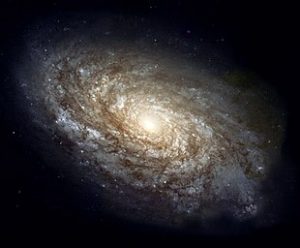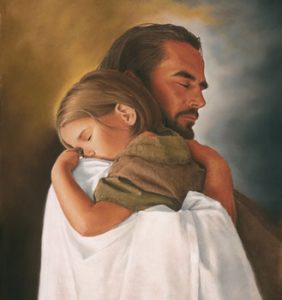What Makes Us Worthy In Heavenly Father’s Eyes
We all understand that Heavenly Father loves us.
But to say that He simply loves us doesn’t come close to the great paradox of the relationship between God and Man. Our Heavenly Father has stated in reference to mankind that “a hair of his head shall not fall to the ground unnoticed” and that His entire work and glory is to “bring to pass the immortality and eternal life of man.”
We may even understand this, but do we know why we are worthy of this great devotion?
Compared to God, man is nothing, and yet we are everything to Him because of His love for us.

Man is Nothing
Within the visible universe, there are two trillion galaxies.
Let me restate that.
Within the visible universe, there are 2,000,000,000,000 galaxies. Within each galaxy, there are an estimated 100,000,000 stars. We know that surrounding these stars are countless solar systems as yet unknowable to mankind, and within these systems are worlds without number.
To illustrate this point even further, this is the view of the knowable universe, from the microscopic atom to the farthest reaches of the universe.
[embedyt] https://www.youtube.com/watch?v=jfSNxVqprvM[/embedyt]
Even this is but a small glimpse of the works of God. Heavenly Father told Moses on the mountaintop that “no man can behold all my works, except he behold all my glory; and no man can behold all my glory, and afterwards remain in the flesh on the earth.”
And these are just His worlds. When it comes to His children, Heavenly Father describes them as innumerable as the sands of the sea. That is a lot of hairs to keep track of.
It’s always been interesting to me that in describing His children, Heavenly Father uses metaphors like “sands of the sea.” Not only are the sands of the sea innumerable, but sand and dirt is pretty much worthless. It has no monetary value, no aesthetic worth, and it’s so common that it’s used to describe people who are “about as useful as dirt.”
King Benjamin understood this point when he spoke in his final sermon. He described mankind as “less than the dust of the earth“; dust bends to the will of the Father, but sometimes we do not, which leads us to the conclusion that dust is more worthy of being in God’s presence than we are.
Without Heavenly Father’s love, we have no worth.

Man is Everything
This is why the Savior’s Atonement is so significant.
Before the Atonement, we were simply creation. It is true that we have spirits inhabiting these bodies, but without the ability to repent and progress in the next life, we were no different than sand. Comparing sand to galaxies without end, our lives don’t stack up.
And then Heavenly Father sent his Son to die for us.
Can you imagine sending your son to die for a handful of sand? The answer is you can’t, because you would never do that. Sand has no potential for progression, but we do, and it is for that potential that Heavenly Father sent his Only Begotten Son. We are still less than the earth, but through the Atonement of Christ, we have the ability to become more.
On this principle, President Uchtdorf said the following:
“This is a paradox of man: compared to God, man is nothing; yet we are everything to God. While against the backdrop of infinite creation we may appear to be nothing, we have a spark of eternal fire burning within our breast. We have the incomprehensible promise of exaltation—worlds without end—within our grasp. And it is God’s great desire to help us reach it.”
That’s what makes us more than sand. Our Savior’s love transformed us from creation to possibility, and for that and more He deserves our matchless love.

What Do We Do With This Love?
We become something more than sand.
We read our scriptures. We pray. We go to church, we fulfill our callings, and we magnify our talents. We love our neighbors, because if we are deserving of God’s attention then they are too. We teach our children and help them grow, because through us our Heavenly Father helps them reach their potential.
And at the end of our lives, I pray that we can all look back with thankful eyes that we did something with the love and devotion that Heavenly Father offered to us, whose love helped us to become more than sand.


